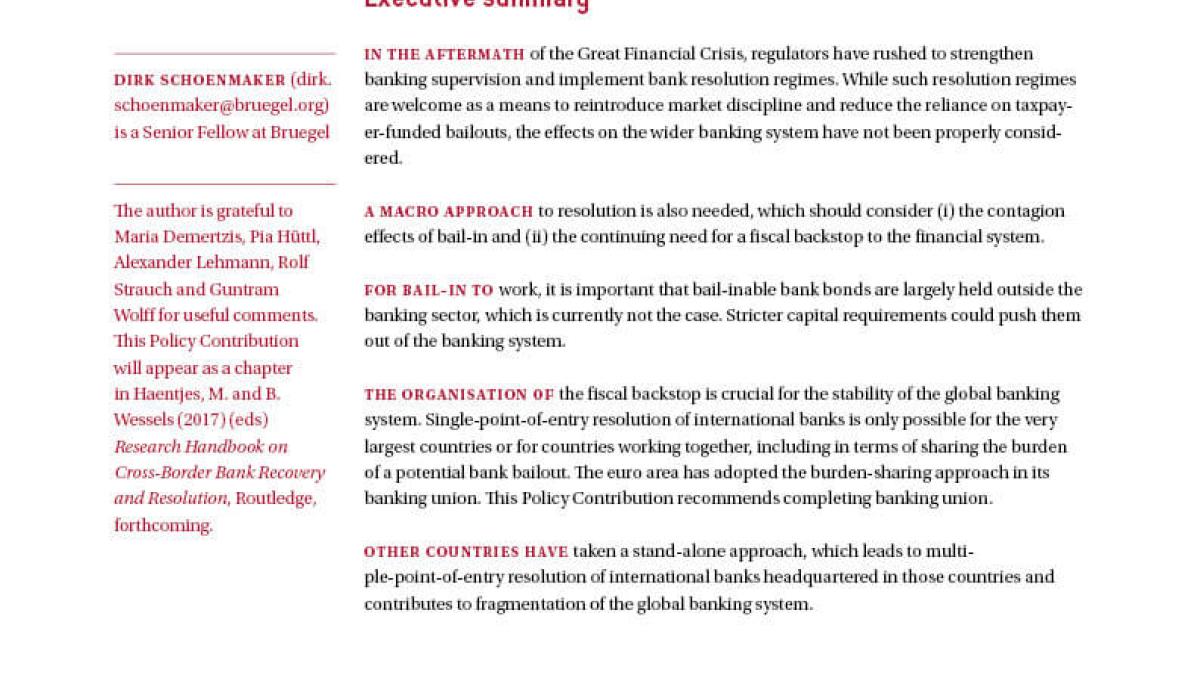A macro approach to international bank resolution
As regulators rush to strengthen banking supervision and implement bank resolution regimes, a macro approach to resolution is needed that considers bo

In the aftermath of the Great Financial Crisis, regulators have rushed to strengthen banking supervision and implement bank resolution regimes. While such resolution regimes are welcome as a means to reintroduce market discipline and reduce the reliance on taxpayer-funded bailouts, the effects on the wider banking system have not been properly considered.
A macro approach to resolution is also needed, which should consider the contagion effects of bail-in and the continuing need for a fiscal backstop to the financial system.
For bail-in to work, it is important that bail-inable bank bonds are largely held outside the banking sector, which is currently not the case. Stricter capital requirements could push them out of the banking system.
The organisation of the fiscal backstop is crucial for the stability of the global banking system. Single-point-of-entry resolution of international banks is only possible for the very largest countries or for countries working together, including in terms of sharing the burden of a potential bank bailout. The euro area has adopted the burden-sharing approach in its banking union. This Policy Contribution recommends completing banking union.
Other countries have taken a stand-alone approach, which leads to multiple-point-of-entry resolution of international banks headquartered in those countries and contributes to fragmentation of the global banking system.



